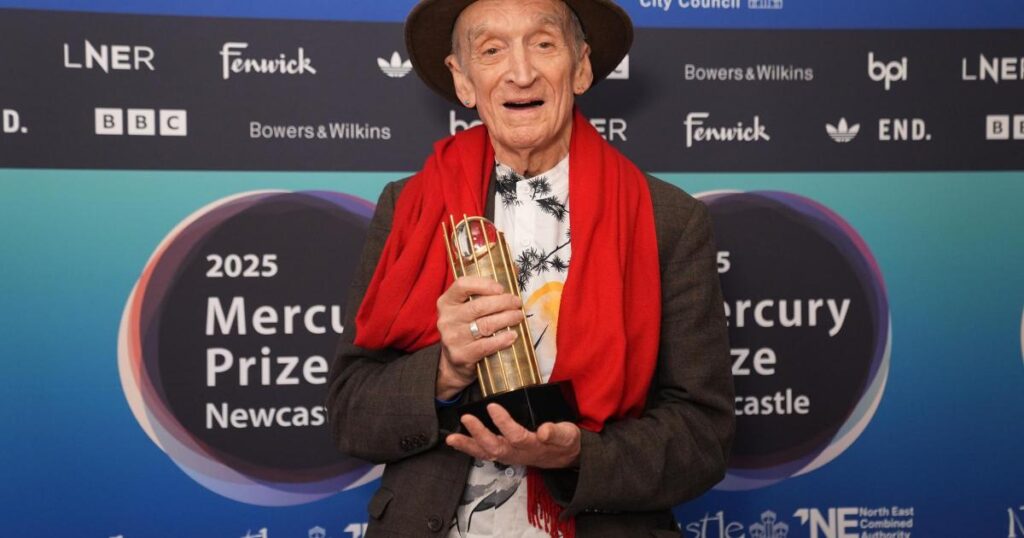The Hampstead-raised Octogenarian is up against Britpop band Pulp, Irish singer CMAT, and fellow north Londoners Wolf Alice for the UK’s top album prize.
Singer songwriter Sam Fender, Irish indie rockers Fontaines DC, FKA Twigs, Jacob Alon, Joe Webb, Emma-Jean Thackray, Pa Salieu and PinkPantheress complete the 12 artist shortlist, with the winner announced next month.
The prize champions the year’s best album as well as new music in the UK and Ireland across multiple genres.
Carthy has been nominated for Transform Me Then Into A Fish, while Wolf Alice, who met at an open mic night at Islington’s Hope and Anchor and played their first gig at Highbury Garage 15 years ago, are up for their fourth album The Clearing.
Formed by Joff Oddie and lead singer Ellie Rowsell, who grew up in Archway and went to Camden School for Girls, the band are distinguished for having all their previous albums nominated for the prize with Visions Of A Life winning in 2018.
But Carthy can lay claim to have been at the start of an entire movement after emerging on the folk revival scene in the early 60s.
He first picked up a guitar after hearing Lonnie Donegan’s Rock Island Line and, while working backstage at The Regent’s Park Open Air Theatre performed his first professional gig aged 16 at The Loft coffee bar in Primrose Gardens, Belsize Park.
By 1962 he was playing London’s folk clubs including the King & Queen Pub near Goodge Street where Bob Dylan heard him play his version of the old folk song Scarborough Fair.
Dylan came to hear him again at The Troubadour in Earl’s Court and urged him “teach me that.”
Carthy has told how the American singer would visit him at his flat in Haverstock Hill, Belsize Park. During the freezing winter of 1962/63 one of Carthy’s friends had found an old piano abandoned outside Chalk Farm station and pushed it up the hill.
When Dylan saw him chopping it up for firewood he said “you can’t do that, man, it’s a musical instrument!”
Carthy replied: “It’s a piece of junk”, and after a few more swings at the piano, Bob turned and asked “could I try?” – and battered it.
Although Dylan never mastered Scarborough Fair the way Carthy played it, he did use it as inspiration for his classic song Girl From The North Country.
When Paul Simon moved to London in 1965, he also played the folk clubs including The Three Horseshoes in Hampstead, The Roundhouse and The Gatehouse in Highgate. And he made Scarborough Fair famous with his arrangement on 1966 album Parsley, Sage, Rosemary and Thyme.
Carthy also recorded the song on his self-titled debut album in 1965.
Sixty years later a new version, featuring sitar backing from Sheema Mukherjee is on his Mercury nominated album.
It includes three original songs and eight re-recorded from his days as the 60s troubadour playing London’s folk clubs.
Carthy told BBC 6 Music he was “stunned” to be nominated for the Mercury Prize adding it was a “fabulous privilege.
“I’m enjoying every second of it.”
Judges include Jamie Cullum, DJ Jamz Supernova, and The Times pop and rock critic Will Hodgkinson, and the winners will be announced in Newcastle on October 16.




